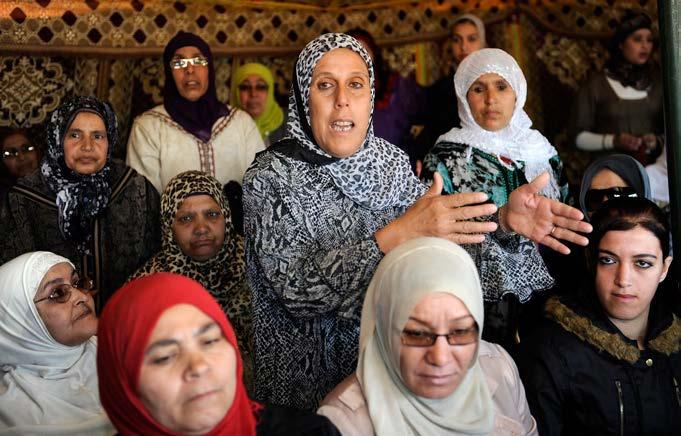
2 minute read
Build and expand alliances and partnerships that support women’s human rights in customary and informal justice systems
Build an d expan d allianc es an d partn erships that support women ’s human rights in customary an d in formal j ustice systems
Ensuring protection of women’s rights and transforming women’s access to justice in CIJ systems requires working with a range of actors and allies. This can include building alliances across women’s groups, and working with CIJ actors, with community, customary and religious leaders, human rights actors and community-based organizations, among others.
Advertisement
B uilding relationships between women’s organizations and movements, in all their diversity, can assist in sharing learning, amplifying advocacy and strengthening alliances to advance women’s rights. This involves accepting that different organizations may adopt contrasting approaches and perspectives, but with a shared interest in expanding protections for women’s rights. Constructive engagement to expand common ground can be fostered between the international women’s rights movement and women’s groups pushing for greater acknowledgement of and engagement with CIJ systems. This can include examining how international human rights frameworks can deliver relevant guidance for CIJ systems to ensure these critical justice mechanisms are not left out.
P romising results are emerging from women leaders and women’s groups working with ‘unusual allies’ in efforts to advance women’s rights. This can include work, if strategic opportunities exist, with some of those often thought to undermine women’s rights, including CIJ, religious and customary leaders (such as soweis 160 in Sierra Leone). Winning over those who might otherwise be considered spoilers offers an important avenue for expanding the protection of women’s rights. Such potential allies may need to be approached cautiously. Unusual allies can also extend to less controversial but often overlooked partners, such as market women’s associations and mothers who hold significant soft power that is rarely utilized.
Engagement modality: Build and expand alliances and partnerships that support women’s human rights in CIJ systems
Entry points Conv ening spaces for women’s organizations working with CIJ and international women’s rights movement to meet and build common ground. Supporting engagement with unusual allies, including building bridges with potential spoilers to facilitate change.
Important considerations Avoid duplication: many women’s organizations at the national level may already have personal and institutional relationships as well as regional or international linkages in place. Do no harm: working with unusual allies can present an important opportunity to press forward change, but care needs to be taken to select and engage cautiously to do no harm. Recognize diverse forms of power: when thinking about potential allies, consider the different forms of power that stakeholders wield and pay attention to soft forms of ‘power with’ or ‘power to’.
E xamples and good practices Globally, there are increased efforts to convene consultations on women’s rights and CIJ, bringing together women’s organizations and experts from diverse settings to share experiences and advocate for greater engagement on issues of women and CIJ. These have been both high-profile public events as well as closed door roundtables to enable frank exchange, resulting in policy and programming guidance. 161







